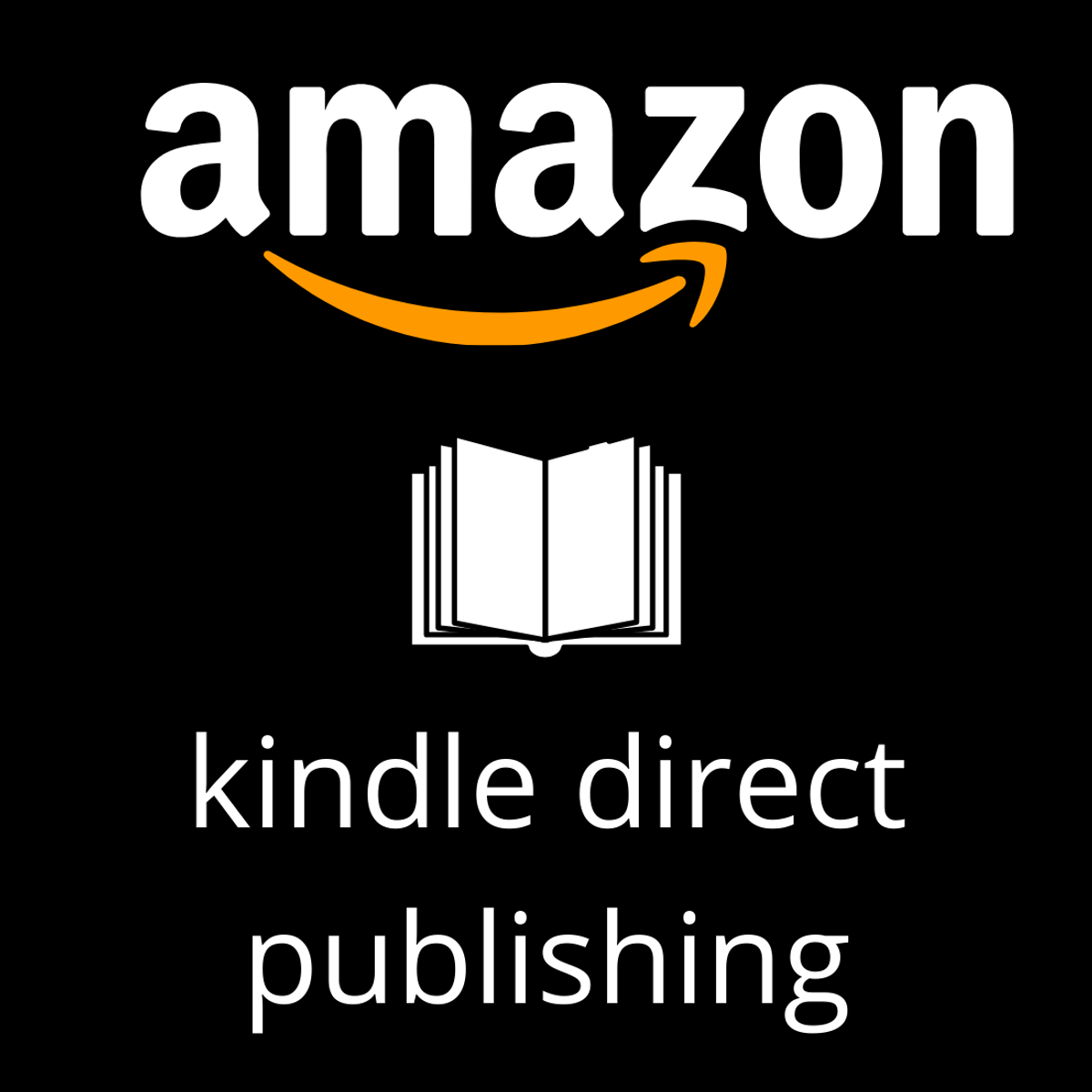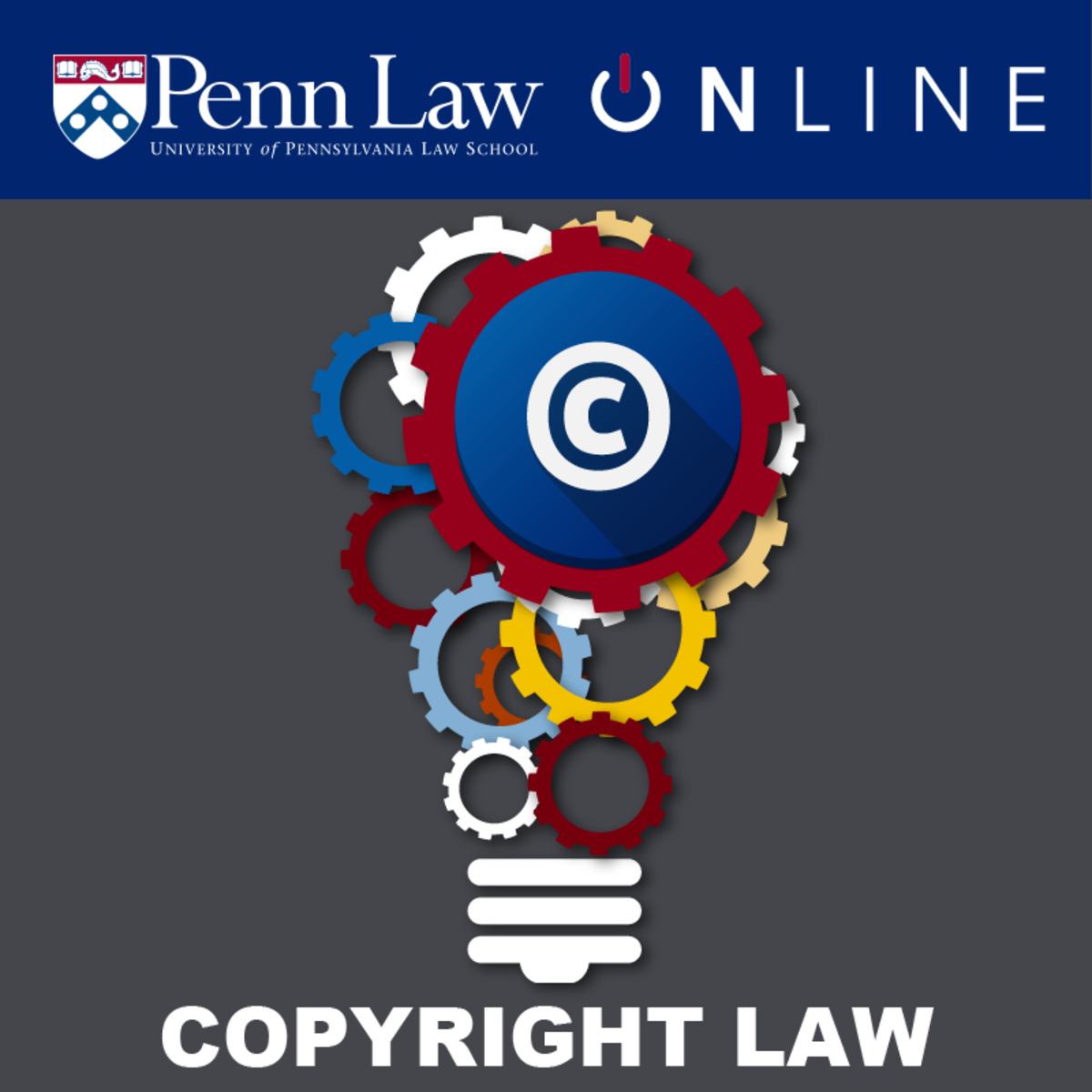Publisher
A Career Guide to Becoming a Publisher
Publishing stands as the vital bridge connecting creators with their audiences. At its core, a publisher is an individual or entity responsible for preparing, producing, and distributing content—be it books, journals, music, software, or digital media. They select works, manage the production process, handle marketing and sales, and navigate the financial and legal aspects of bringing creative or informational content to the public eye.
Working as a publisher often involves a dynamic mix of creative judgment, business strategy, and project management. It's a field that attracts those passionate about stories, ideas, and information, offering the chance to shape cultural conversations and disseminate knowledge. Engaging with authors, designers, printers, and marketers makes it a highly collaborative and multifaceted career.
Introduction to Publishing
Defining the Publisher's Role
A publisher operates at the intersection of art and commerce. Their primary role is to identify content with potential—whether artistic merit, informational value, or market appeal—and invest resources to bring it to an audience. This involves risk assessment, financial planning, and strategic decision-making about which projects to champion.
The scope of publishing extends far beyond simply printing books. It encompasses the entire lifecycle of a piece of content, from initial concept or manuscript acquisition to final distribution and sales tracking. Publishers act as curators, gatekeepers, project managers, and business developers within the content industries.
Understanding this role is crucial for anyone considering a career in the field. It requires a blend of editorial sensibility, market understanding, and operational efficiency. It's not just about loving books or media; it's about understanding the business of bringing them to life.
A Brief History of Publishing
The history of publishing is intertwined with the history of communication technology. From ancient scribes copying manuscripts to Gutenberg's printing press revolutionizing mass communication, the methods have evolved dramatically. The rise of literacy and the Enlightenment further fueled the demand for printed materials.
The 19th and 20th centuries saw the establishment of major publishing houses, the professionalization of editing, and the growth of international book markets. Copyright laws developed to protect authors and publishers, creating a framework for the modern industry. Periodicals, journals, and newspapers also flourished, diversifying the publishing landscape.
The digital revolution starting in the late 20th century represents the most recent seismic shift. Ebooks, online journals, digital distribution platforms, and self-publishing tools have fundamentally altered how content is created, distributed, and consumed, presenting both challenges and opportunities for traditional and new publishers alike.
This book offers insights into the dynamics of the market and what makes certain books achieve widespread success.
Where Publishers Work: Key Industries
Publishers operate across a diverse range of industries. The most traditional is book publishing, encompassing trade books (fiction, non-fiction for a general audience), academic publishing (scholarly monographs, textbooks), and educational publishing (K-12 materials).
Journal publishing is another major sector, particularly in science, technology, and medicine (STM), where publishers manage peer review and dissemination of research. Magazine and newspaper publishing, while facing digital disruption, continue to employ publishers focused on periodical content.
Beyond print, digital media represents a rapidly growing area. This includes websites, blogs, online databases, digital archives, and platforms for user-generated content. Publishers in this space often focus on content strategy, user engagement, and digital advertising models. Music publishing and software publishing are distinct fields with their own specific practices.
The Core Objectives of a Publisher
Regardless of the industry, a publisher's core objectives remain consistent. First is content acquisition and curation: identifying and securing high-quality, relevant content that aligns with their mission or market niche. This requires strong editorial judgment and negotiation skills.
Second is value addition: transforming raw content into a polished, marketable product through editing, design, and production management. This ensures quality and enhances the audience's experience. You can explore related concepts within the broader Humanities or Business categories on OpenCourser.
Third is market connection: effectively marketing, distributing, and selling the content to its target audience. This involves understanding market trends, building relationships with distributors and retailers (or managing direct-to-consumer platforms), and implementing promotional strategies. Finally, financial viability is key: managing budgets, controlling costs, negotiating contracts (including royalties), and ensuring the overall profitability of the publishing venture.
Roles and Responsibilities of a Publisher
Acquisition and Curation of Content
One of the most critical functions of a publisher is identifying and acquiring compelling content. This often starts with an acquisitions editor who scouts for promising authors or projects, reads manuscript submissions, and evaluates proposals based on quality, market potential, and fit with the publisher's list.
Publishers must possess keen editorial judgment to recognize talent and potential bestsellers or impactful works. They build relationships with literary agents, attend conferences, and stay attuned to cultural trends and market demands. The decision to acquire a work involves significant financial investment and risk.
Curation involves shaping the publisher's overall catalog or list. This means making strategic choices about the types of content to publish, the genres or fields to specialize in, and the overall identity and reputation of the publishing house or imprint. A well-curated list attracts specific audiences and authors.
This book delves into the mechanics of storytelling and what makes fiction engaging, a useful perspective for evaluating narrative content.
Project Management: From Manuscript to Market
Once content is acquired, the publisher oversees its journey to publication. This is a complex project management role involving multiple stages: editing (developmental, copyediting, proofreading), design (cover and interior layout), typesetting, printing (for physical products), and digital formatting.
Publishers coordinate workflows, set schedules, and manage budgets for each project. They ensure that quality standards are met at every stage and that the final product is delivered on time. This requires strong organizational skills and attention to detail.
Distribution logistics are also part of this process, involving coordination with printers, warehouses, distributors, and retailers (both physical and online). For digital products, it involves managing uploads to various platforms and ensuring metadata accuracy for discoverability.
Understanding the visual aspects of book creation is also important.
Collaboration Across Teams
Publishing is rarely a solo endeavor. Publishers work closely with a wide range of collaborators. Internally, this includes editors, designers, production staff, marketing and publicity teams, sales representatives, and rights managers.
Externally, the most crucial relationship is often with the author or creator. Publishers act as partners, guiding the author through the revision process, involving them in key decisions (like cover design), and managing expectations. Clear communication and strong interpersonal skills are vital.
Publishers also interact with literary agents, printers, distributors, retailers, media contacts, and sometimes translators or illustrators. Building and maintaining a strong network of professional relationships is essential for success in the field.
For those interested in writing or working closely with writers, these careers are closely related.
Financial Oversight and Business Management
Publishers are ultimately responsible for the financial health of their projects and, often, their entire publishing unit or company. This involves creating and managing budgets for individual titles, forecasting sales, and analyzing profitability.
Negotiating contracts with authors is a key financial task, determining advances, royalty rates, and subsidiary rights splits. Publishers must understand contract law and possess strong negotiation skills. They track sales data, manage royalty payments, and make strategic decisions based on financial performance.
Understanding the broader market economics, including pricing strategies, competitor analysis, and return on investment calculations, is crucial. Publishers need business acumen alongside their editorial and creative skills.
Adapting to Digital Publishing Trends
The rise of digital technologies has profoundly impacted publishing. Publishers must navigate the world of ebooks, audiobooks, online platforms, and digital marketing. This involves understanding different digital formats, distribution channels (like Amazon Kindle, Apple Books, Audible), and pricing models.
Publishers need to adapt their workflows to incorporate digital production and distribution. They must also leverage digital marketing tools, including social media, email marketing, and online advertising, to reach readers. Understanding Search Engine Optimization (SEO) and online discoverability is increasingly important.
Furthermore, publishers engage with new models like subscription services (e.g., Kindle Unlimited), direct-to-consumer sales, and leveraging data analytics to understand reader behavior. Adaptability and a willingness to embrace technological change are essential for modern publishers.
Exploring the possibilities of self-publishing can provide valuable insights into the digital landscape.
Formal Education Pathways
Relevant Undergraduate Degrees
While there's no single required degree to become a publisher, certain fields provide a strong foundation. Degrees in English Literature, Creative Writing, or Comparative Literature develop critical reading, analytical skills, and an understanding of narrative and genre.
Communications, Media Studies, or Journalism degrees offer insights into media industries, audience engagement, and content production. Business or Marketing degrees can be advantageous, providing knowledge of finance, management, and sales strategies crucial for the commercial aspects of publishing.
Some universities offer specific undergraduate programs or concentrations in Publishing Studies, although these are less common than related majors. Regardless of the major, developing strong writing, editing, critical thinking, and communication skills is paramount.
Graduate Programs in Publishing
For those seeking specialized training, several universities offer Master's degrees specifically in Publishing. These programs provide a comprehensive overview of the industry, covering topics like editorial practices, book production, marketing, rights management, and digital publishing.
These programs often incorporate practical workshops, case studies, and internship opportunities, offering valuable hands-on experience and networking connections. They can be particularly beneficial for career changers or those aiming for management roles within established publishing houses.
Related graduate degrees in fields like Library Science, Business Administration (MBA) with a media focus, or specific humanities fields can also be relevant, depending on the desired area of specialization within publishing (e.g., academic, trade, digital).
Understanding the legal framework is crucial in publishing. This course provides a solid grounding in copyright principles.
These books offer guidance on communication research and academic writing, skills valuable in many publishing contexts.
The Importance of Internships and Experience
Practical experience is often considered as important, if not more so, than formal education in the publishing industry. Internships provide invaluable exposure to the day-to-day realities of publishing work and allow aspiring publishers to build skills and professional connections.
Seeking internships at publishing houses, literary agencies, magazines, or related organizations is highly recommended. These opportunities allow individuals to explore different facets of the industry (editorial, marketing, production) and discover where their interests and aptitudes lie.
Early career roles, such as editorial assistant, production assistant, or marketing coordinator, also serve as crucial stepping stones. Building a track record of experience demonstrates commitment and capability to potential employers. Many successful publishers started in entry-level positions and worked their way up.
Certifications and Specialized Training
Beyond degrees, specific certifications can enhance a publisher's skill set and resume. Certifications in areas like copyediting, proofreading, or graphic design software (e.g., Adobe InDesign) demonstrate technical proficiency.
Training in digital marketing, social media management, or data analytics can be particularly valuable given the industry's digital shift. Short courses or workshops on topics like copyright law, contract negotiation, or specific Content Management Systems (CMS) used by publishers can also provide a competitive edge.
While not always mandatory, these specialized credentials signal a commitment to professional development and can be helpful for career advancement or pivoting into specific roles within the publishing ecosystem. Many such courses can be found through platforms cataloged by OpenCourser.
Online Learning and Skill Development
Entering Publishing Through Self-Study
While formal education and internships are common routes, entering the publishing field through self-study and online learning is increasingly feasible, especially with the rise of digital and independent publishing.
Aspiring publishers can leverage online courses, industry blogs, podcasts, and books to learn about editorial processes, market trends, production techniques, and business management. Building practical skills independently is key to demonstrating capability.
This path requires discipline, initiative, and a proactive approach to networking. It might be more challenging to break into traditional publishing houses without formal credentials or connections, but opportunities in independent publishing, freelance work, or starting one's own venture are accessible.
Making the transition into a new field takes courage and persistence. Remember that building expertise takes time. Online resources provide flexible pathways to acquire foundational knowledge and skills at your own pace. Stay curious, seek out mentors, and celebrate small victories along the way.
Key Technical Skills for Modern Publishers
Proficiency with certain software and digital tools is essential for modern publishers. Familiarity with word processing software (like Microsoft Word, Google Docs) and spreadsheet programs (Excel, Google Sheets) is fundamental.
For those involved in production and design, knowledge of the Adobe Creative Suite, particularly Adobe InDesign for layout, Photoshop for image editing, and Acrobat for proofs, is often required. Understanding file formats (EPUB, MOBI for ebooks) and basic HTML/CSS can also be beneficial.
Familiarity with Content Management Systems (CMS) like WordPress is valuable for digital publishing. Additionally, understanding analytics platforms (like Google Analytics) helps in tracking online engagement and sales data. Many online courses focus specifically on these tools.
This course offers comprehensive training in a key design tool used throughout the publishing industry.
Understanding how digital assets are managed is also useful.
Building a Portfolio with Independent Projects
For self-directed learners or those lacking formal internship experience, creating a portfolio of independent projects is an excellent way to showcase skills. This could involve starting a blog, launching an online magazine, or even self-publishing a small book or zine.
Working on projects for non-profits, student organizations, or local community groups can provide practical experience in editing, design, and project management. Documenting these experiences, highlighting the skills utilized and the outcomes achieved, creates tangible proof of ability.
Contributing book reviews, articles about the industry, or even creating mock-up project proposals demonstrates engagement and understanding. A well-curated portfolio can be a powerful tool when applying for jobs or seeking freelance opportunities.
Consider exploring courses on writing or content creation to build project-worthy skills.
Supplementing Education with Online Courses
Online courses offer a flexible and accessible way to supplement formal education or fill knowledge gaps. Whether you're a student wanting deeper insight into a specific area like copyright law, or a professional needing to upskill in digital marketing, online platforms provide targeted learning opportunities.
Platforms like those aggregated on OpenCourser host courses on everything from editing techniques and graphic design software to publishing business models and niche genres like children's literature. You can use OpenCourser's search and browse features, perhaps starting with Communication Studies, to find relevant options.
Learners can use online courses to earn certificates, build specific technical skills, or simply broaden their understanding of the industry landscape. This continuous learning approach is valuable in a field as dynamic as publishing. OpenCourser's Learner's Guide offers tips on maximizing the value of online learning.
These courses offer specialized knowledge relevant to specific publishing niches or skills.
Publisher Career Progression
Entry-Level Roles
Most careers in publishing begin with entry-level positions that provide foundational experience. Common starting points include Editorial Assistant, Production Assistant, Marketing Assistant, or Publicity Assistant.
Editorial Assistants typically support acquiring editors by reading submissions, writing reader reports, handling correspondence, and performing administrative tasks. Production Assistants help manage schedules, liaise with printers, and track manufacturing processes. Marketing and Publicity Assistants support campaigns, manage social media, and coordinate events.
These roles offer exposure to the core functions of a publishing house and allow individuals to learn the ropes, develop skills, and identify areas for future specialization. They are often competitive, requiring strong organizational skills, attention to detail, and a demonstrated passion for the industry.
Mid-Career Advancement
After gaining experience in entry-level roles, professionals can advance to mid-career positions with greater responsibility. An Editorial Assistant might become an Assistant Editor, then an Associate Editor, taking on more substantive editing tasks and potentially beginning to acquire their own projects.
Similarly, assistants in production, marketing, or publicity can progress to roles like Production Coordinator, Marketing Manager, or Publicist. Another common mid-career path is the Acquisitions Editor role, focused solely on identifying and signing new authors and projects.
Project Manager roles also emerge at this level, overseeing the entire publication process for specific titles or lists. These positions require a blend of editorial, production, and business skills, along with proven experience and industry knowledge.
Senior Positions and Leadership
With significant experience and a strong track record, publishers can move into senior leadership roles. These might include Senior Editor, Managing Editor, Executive Editor, or Publisher/Publishing Director of an imprint or division.
At this level, responsibilities shift towards strategic planning, financial oversight, list management, and team leadership. Senior publishers shape the overall direction of their publishing program, make major acquisition decisions, and represent the company within the industry.
Top executive positions like Publisher of a major house or CEO involve overseeing all aspects of the business, setting long-term strategy, managing large teams, and navigating complex market challenges. These roles require extensive industry experience, leadership capabilities, and strong business acumen.
Alternative Paths and Freelancing
The traditional path within a publishing house isn't the only option. Many publishing professionals pursue alternative career paths. Freelancing is common, with individuals offering services like editing, proofreading, indexing, design, or marketing consulting on a project basis.
Some experienced publishers start their own independent presses or literary agencies. Others might transition into related fields like content strategy, corporate communications, or non-profit work that involves publication management.
Consulting roles, advising authors or organizations on publishing strategies, are another possibility. Furthermore, the rise of self-publishing platforms has created opportunities for individuals to act as publishing service providers, helping authors navigate the process. These paths offer flexibility but require entrepreneurial skills and self-discipline.
Many skills developed in publishing are transferable to related fields.
Industry Trends Impacting Publishers
The Shift to Digital-First and Self-Publishing
The ongoing digital transformation continues to reshape publishing. Many publishers are adopting digital-first strategies, prioritizing ebooks, audiobooks, and online content delivery alongside or even ahead of print. This requires investment in digital workflows, platforms, and marketing.
The growth of accessible self-publishing platforms, led by Amazon's Kindle Direct Publishing (KDP), has empowered authors to bypass traditional gatekeepers. This creates both competition and opportunities for publishers, who must demonstrate their value proposition in editing, design, marketing, and distribution.
Hybrid models are emerging, where authors might work with traditional publishers for some projects and self-publish others. Publishers are also exploring new digital formats, interactive content, and subscription models to adapt to changing consumer habits. According to industry observers like those at Wiley, adaptability is key for navigating these shifts.
This book explores the changing landscape of academic communication in the digital age.
Sustainability in Print Publishing
Growing environmental awareness is prompting publishers to examine the ecological footprint of print production. Concerns range from paper sourcing and deforestation to energy consumption in printing and emissions from transportation.
Publishers are increasingly exploring sustainable practices, such as using recycled or certified paper (e.g., FSC-certified), opting for eco-friendly inks, optimizing print run sizes to reduce waste, and working with printers who adopt greener technologies.
Print-on-demand (POD) technology also plays a role, allowing books to be printed only when ordered, minimizing excess inventory and waste. Balancing the demand for physical books with environmental responsibility is becoming a significant consideration for the industry.
AI Tools in Publishing Workflows
Artificial intelligence (AI) is beginning to influence various aspects of publishing. AI tools are being developed for tasks like manuscript assessment, copyediting suggestions, market trend analysis, automated translation, and generating marketing copy.
While AI offers potential efficiencies, it also raises questions about quality control, bias in algorithms, and the future role of human editors and curators. Publishers are exploring how to integrate AI ethically and effectively to augment, rather than replace, human expertise.
The impact of AI on creative processes, copyright, and job roles within publishing is a subject of ongoing discussion and development within the industry. Staying informed about AI advancements is becoming crucial for publishing professionals.
Globalization and Content Markets
Publishing is an increasingly global business. Publishers seek to sell rights for their content in international markets, requiring expertise in rights negotiation, translation management, and understanding diverse cultural contexts.
Digital platforms facilitate global distribution, but reaching international audiences effectively requires localized marketing strategies and sometimes content adaptation. The rise of major publishing conglomerates with global operations reflects this trend.
Emerging markets in Asia, Latin America, and Africa present new growth opportunities but also unique challenges related to infrastructure, censorship, and local competition. Navigating the complexities of the global content landscape is a key strategic focus for many publishers.
This course touches upon international communication dynamics, relevant for global publishing contexts.
Financial and Market Realities
Salary Expectations
Salaries in publishing vary significantly based on role, experience level, location, and the type of publishing house (e.g., large conglomerate vs. small independent press). Entry-level positions typically offer modest salaries, reflecting the high level of competition for these roles.
According to data from the U.S. Bureau of Labor Statistics (BLS), the median annual wage for editors was $73,910 in May 2023, but this covers a broad range of editing roles across industries, and entry-level publishing salaries are often lower. Mid-career and senior publishing roles, particularly those involving acquisitions or management, command higher salaries.
Geographic location plays a significant role, with major publishing hubs like New York City generally offering higher compensation but also having a higher cost of living. It's important for prospective publishers to research salary ranges specific to their desired role and location.
Freelance vs. Traditional Employment
Many publishing professionals work on a freelance basis, offering specialized services like editing, proofreading, indexing, design, or translation. Freelancing offers flexibility and autonomy but comes with income variability and the need to manage one's own business (marketing, invoicing, taxes).
Freelance rates vary widely based on experience, specialization, and the nature of the project. Building a strong reputation and client base is essential for sustained freelance success. Platforms connecting freelancers with projects exist, but networking remains crucial.
Traditional employment within a publishing house provides more stability, benefits, and structured career progression opportunities. However, it may offer less flexibility. The choice between freelance and traditional employment depends on individual priorities, risk tolerance, and career goals.
Market Demand by Genre and Media Type
The demand for published content varies across different genres and media formats. Trends in reader preferences influence which types of books or content are most commercially successful at any given time. Publishers constantly analyze market data to identify popular genres and emerging trends.
For example, certain genres like romance, thriller, and fantasy often demonstrate consistent commercial strength in trade publishing. In academic publishing, demand is driven by research trends and curriculum needs. Children's books represent another significant market segment.
The demand for different media types also shifts. While print remains resilient, ebooks and audiobooks have seen significant growth. Publishers must adapt their strategies to cater to these evolving consumption patterns, investing in formats that resonate with current audiences.
Understanding what makes a book a bestseller is key market knowledge.
Exploring specific genres can provide insight.
Impact of Industry Consolidation
The publishing industry has witnessed significant consolidation over the past few decades, with a small number of large multinational conglomerates acquiring many smaller presses and imprints. This concentration impacts market dynamics.
Consolidation can lead to greater efficiencies and global reach for the large players, but it may also reduce competition, potentially making it harder for new authors to get published or for independent presses to thrive. Concerns exist about the homogenization of content and reduced diversity of voices.
However, the rise of independent publishing and digital platforms provides counter-trends, offering alternative avenues for authors and smaller publishers. Understanding the structure of the industry and the influence of major players is important for anyone navigating a publishing career.
Essential Skills for Modern Publishers
Editorial Judgment and Market Awareness
At the heart of publishing lies strong editorial judgment: the ability to assess the quality, originality, and potential of a piece of content. This involves critical reading skills, understanding narrative structure, clarity of argument, and stylistic finesse.
Equally important is market awareness. Publishers need to understand their target audience, identify trends, and gauge the commercial viability of a project. This requires staying informed about current bestsellers, competitor activities, and broader cultural conversations.
Balancing artistic merit with market potential is a constant challenge. Successful publishers develop an intuition, informed by experience and data, for selecting content that will resonate with readers and succeed commercially.
These books offer deep dives into the elements of narrative and fiction writing, honing editorial perspective.
Negotiation and Contract Management
Publishers frequently engage in negotiations, primarily with authors and agents regarding advances, royalties, and subsidiary rights (like film or translation rights). Strong negotiation skills are essential to securing favorable terms while maintaining good relationships.
Understanding publishing contracts is critical. Publishers must be familiar with standard clauses, legal terminology, and the implications of different contractual arrangements. They manage the contract lifecycle, ensuring compliance and handling payments accurately.
Negotiation skills also extend to dealings with printers, distributors, and other partners. The ability to advocate effectively for the publisher's interests while finding mutually agreeable solutions is a key competency.
Mastering professional communication is foundational for effective negotiation.
Understanding copyright is fundamental to contract management.
Data Literacy and Analytics
In the digital age, publishers have access to more data than ever before. Understanding how to interpret sales data, website analytics, social media metrics, and reader demographics is increasingly important for making informed decisions.
Data literacy enables publishers to track the performance of titles, identify successful marketing strategies, understand audience behavior, and forecast future trends. This data-driven approach complements traditional editorial intuition.
Familiarity with basic analytical tools and concepts helps publishers optimize pricing, target marketing efforts more effectively, and make smarter acquisition choices. While not necessarily needing to be a data scientist, a basic comfort level with numbers and analytics is a valuable asset.
While not directly publishing-focused, understanding data roles can provide context.
Adaptability and Digital Fluency
The publishing landscape is constantly evolving due to technological advancements and changing market dynamics. Adaptability is therefore a crucial skill. Publishers must be willing to learn new tools, embrace new workflows, and adjust strategies in response to change.
Digital fluency goes beyond basic computer skills. It involves understanding the nuances of online platforms, digital marketing techniques, ebook formats, and emerging technologies like AI or blockchain as they relate to content distribution and rights management.
A proactive approach to continuous learning and professional development helps publishers stay relevant and effective in this dynamic environment. Embracing hybrid print/digital workflows and being open to experimentation are key characteristics of successful modern publishers.
This course explores digital transformation within media industries.
Ethical Considerations in Publishing
Bias in Content Selection
Publishers act as gatekeepers, deciding which voices and stories reach the public. This power comes with the responsibility to be aware of potential biases—conscious or unconscious—in content selection.
Historical biases in publishing have led to the underrepresentation of certain groups. Publishers must actively work to evaluate submissions based on merit and potential, striving for fairness and considering a wide range of perspectives.
Implementing clear submission guidelines, diversifying editorial teams, and seeking out works from underrepresented communities are steps publishers can take to mitigate bias and foster a more inclusive literary landscape.
Diversity in Authorship and Staffing
Beyond content selection, fostering diversity within the publishing workforce itself is crucial. A more diverse staff brings varied perspectives, experiences, and networks, enriching the editorial process and potentially leading to a more representative range of published works.
Efforts to improve diversity include implementing inclusive hiring practices, offering mentorship programs, and creating a workplace culture where individuals from all backgrounds feel valued and supported. Promoting diversity in authorship involves actively seeking out and supporting writers from marginalized groups.
Industry initiatives and organizations work towards improving representation, but ongoing commitment from individual publishers and houses is necessary to achieve meaningful change. Tracking diversity metrics can help monitor progress.
These courses touch upon themes of voice, identity, and equality, relevant to discussions around diversity.
Handling Controversial Material
Publishers sometimes face decisions about whether to publish content that may be controversial, offensive, or challenge societal norms. This requires careful consideration of principles like freedom of expression, potential harm, and the publisher's editorial mission.
Decisions must balance the value of disseminating challenging ideas against the potential negative consequences. Establishing clear editorial policies and processes for reviewing potentially controversial material can help guide these difficult decisions.
Transparency about editorial choices and engaging in dialogue about controversial content are often important. Publishers must be prepared to defend their decisions while being sensitive to public reaction and ethical responsibilities.
Understanding media ethics provides a framework for navigating these complex issues.
Environmental Responsibilities
As discussed earlier, the environmental impact of print publishing is an increasingly important ethical consideration. Publishers have a responsibility to minimize their ecological footprint where possible.
This involves making conscious choices about paper sourcing, printing processes, transportation, and waste management. Supporting sustainable forestry, using recycled materials, and reducing energy consumption are key areas of focus.
Transparency about environmental practices and exploring innovations like carbon offsetting or more sustainable inks contribute to responsible publishing. Balancing the desire for physical products with ecological stewardship is an ongoing ethical challenge for the industry.
Global Publishing Landscape
Regional Market Variations
The publishing industry is not monolithic; significant variations exist between different regional markets. For instance, the balance between trade, academic, and educational publishing can differ greatly from one country to another.
Reader preferences, distribution infrastructures, regulatory environments, and the prevalence of digital reading also vary. Academic publishing might dominate in regions with strong research output, while trade publishing leads in others.
Understanding these local nuances is crucial for publishers operating internationally or seeking to enter new markets. Strategies must be adapted to suit the specific characteristics of each region.
Cross-Border Collaboration Challenges
While globalization offers opportunities, collaborating across borders presents challenges. These include navigating different legal systems (especially regarding copyright and contracts), managing currency fluctuations, and overcoming language barriers.
Cultural differences can impact communication styles, negotiation approaches, and marketing strategies. Building trust and effective working relationships with international partners requires cultural sensitivity and adaptability.
Logistical complexities related to shipping, customs, and international payments also need careful management. Successful cross-border publishing requires robust systems and expertise in international business practices.
Localization and Translation Demands
Reaching global audiences often requires more than just exporting content; it requires localization. This involves adapting content—not just translating the language—to suit the cultural context, norms, and preferences of the target market.
Managing translation projects is a key aspect of international publishing. Finding skilled translators, ensuring quality control, and handling the complexities of translating nuanced or culturally specific content requires specialized expertise.
The demand for high-quality translation and localization services is growing as publishers seek to maximize the global reach of their content. This creates opportunities for professionals specializing in literary translation and localization management.
Emerging Markets in Publishing
While established markets like North America and Europe remain dominant, significant growth potential exists in emerging publishing markets, particularly in Asia, Latin America, and parts of Africa.
Rising literacy rates, growing middle classes, and increasing internet penetration contribute to demand for books and digital content in these regions. However, publishers face challenges such as developing distribution networks, navigating censorship, and competing with local players.
Understanding the unique opportunities and obstacles within these emerging markets is key for publishers seeking long-term global growth. Building local partnerships and adapting content strategies are often necessary for success.
Frequently Asked Questions
What education is required to become a publisher?
There isn't one mandatory degree. Many publishers hold degrees in fields like English, Communications, Journalism, Media Studies, or Business. These provide valuable analytical, writing, and communication skills. Increasingly, specialized Master's degrees in Publishing are available and can offer focused training and networking opportunities.
However, practical experience is highly valued. Internships and entry-level roles (like editorial or production assistant) are crucial for learning the industry and building a career. Strong skills, passion, and industry knowledge often matter as much as the specific degree.
Continuous learning through online courses and workshops to acquire specific skills (e.g., digital marketing, editing software) is also beneficial throughout a publishing career. Browsing courses on OpenCourser can reveal relevant options.
Can I transition from journalism or editing to publishing?
Yes, transitioning from journalism or editing into a broader publishing role is quite common. Skills developed in these fields—such as strong writing and editing abilities, understanding audiences, meeting deadlines, and content judgment—are highly transferable to publishing.
Journalists often possess strong research and interviewing skills applicable to non-fiction acquisition or development. Editors, depending on their experience, might move into acquisitions, project management, or managing editor roles within a publishing house.
To make the transition smooth, individuals might need to acquire additional knowledge about the business aspects of publishing, such as contracts, royalties, marketing, and distribution. Networking within the publishing industry and highlighting relevant skills are key steps.
How does AI threaten or enhance publishing roles?
AI presents both potential threats and enhancements to publishing roles. Automation could potentially streamline or even replace some tasks currently performed by humans, such as basic copyediting, translation, or initial manuscript screening. This raises concerns about job displacement in certain areas.
However, AI can also enhance publishing roles by providing powerful tools. It can assist with market analysis, optimize marketing campaigns, improve discoverability, and offer editors data-driven insights. AI can free up professionals from routine tasks to focus on more creative and strategic work, like author relationships and content development.
The future likely involves collaboration between humans and AI, where professionals leverage AI tools to work more efficiently and effectively. Adaptability and a willingness to learn how to work with these new technologies will be crucial for publishing professionals.
Is prior authorship experience advantageous?
While not a requirement, having experience as an author can be advantageous for a publisher. It provides firsthand understanding of the creative process, the author's perspective, and the challenges writers face. This empathy can strengthen relationships with authors.
Authorship experience might also enhance editorial judgment, particularly in evaluating writing quality and narrative structure. It demonstrates a deep engagement with literature or the subject matter being published.
However, being a good author doesn't automatically make someone a good publisher. Publishing requires a distinct set of skills, including business acumen, project management, marketing knowledge, and negotiation abilities, which go beyond the act of writing itself.
What industries hire publishers outside traditional media?
Publishing skills are valuable beyond traditional book, magazine, and journal publishing. Many large organizations, corporations, non-profits, and government agencies have internal publishing departments or require professionals with publishing expertise.
This could involve managing the production of technical documentation, corporate reports, marketing materials, educational resources, or internal communications. Universities often have their own presses. Museums and cultural institutions publish catalogs and scholarly works.
Technology companies producing software or online platforms also need people to manage content creation, documentation, and localization. Essentially, any organization that produces and distributes significant amounts of content may employ individuals with publishing skill sets, often under titles like Content Manager, Communications Specialist, or Technical Writer.
How competitive are entry-level publishing roles?
Entry-level roles in traditional publishing houses, especially in major hubs like New York or London, tend to be highly competitive. The field attracts many passionate individuals, often more applicants than available positions.
Internships are often a prerequisite for securing a first job, and even these can be competitive. Candidates typically need strong academic credentials, relevant internship experience, excellent communication skills, and a demonstrated passion for books and the industry.
While challenging, it's not impossible to break in. Persistence, networking, tailoring applications carefully, and potentially being flexible about location or starting role can increase chances. Exploring opportunities in smaller presses, academic publishing, or related fields might also offer less competitive entry points.
Navigating a competitive job market requires preparation. This book offers general job-seeking advice.
Embarking on a career as a publisher requires a blend of passion for content, sharp business sense, and adaptability. It's a field undergoing significant change, offering both challenges and exciting opportunities. By building relevant skills, gaining practical experience, and staying informed about industry trends, aspiring publishers can navigate this dynamic landscape and contribute to bringing meaningful stories and information to the world. Resources like OpenCourser can support your learning journey every step of the way.














